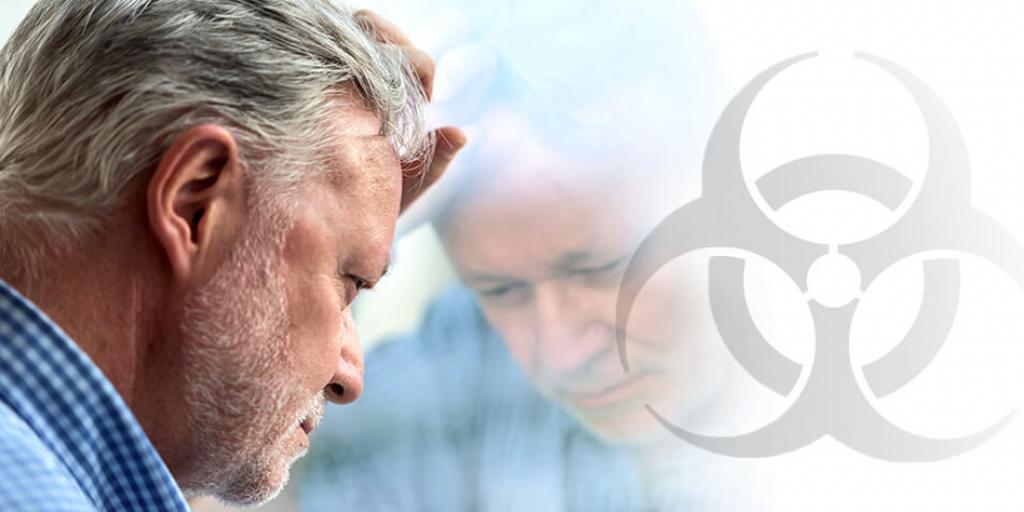
Coronavirus, Quarantine, and Depression
What strange and interesting times we’re living in. Many may even call them scary. I recently read that over 50 percent of the earth’s population is quarantined due to the coronavirus pandemic. Although “quarantine” means different things in different nations, the ultimate result is that we are spending more time by ourselves and spending less time with and around other people. And when we are around others, “social distancing” (remaining nearly two meters/six feet away) and wearing masks can make us feel even more isolated. We can’t even see facial expressions behind the masks.
Human beings are social creatures that need social interaction with others to remain emotionally healthy. Even introverts occasionally need to spend time with others. According to a recent CNBC article citing the prestigious medical journal The Lancet, “A recent study from medical journal The Lancet notes that the psychological impact of quarantine can be great, resulting in a range of mental health concerns from anxiety and anger to sleep disturbances, depression and post-traumatic stress disorder (PTSD).” And, the following additional factors have been shown to make matters worse: “infection fears, frustration, boredom, inadequate supplies, lack of information, financial loss and stigma associated with contracting the disease.”
BUT, does quarantine have to result in depression? Do we have any control over whether or not we become depressed while quarantined? The encouraging answer is YES! And there are steps or actions we can take to remain in a positive state of mental and emotional health. We can still remain happy and at peace during this difficult time!
The CNBC article listed the following steps that individuals can take to avoid quarantine depression and to stay positive. In fact, there are many articles available on the web that list very similar easy-to-take actions:
- Create a routine — Change out of your pajamas, shower, and make a to-do of all the things you want to achieve each day to create a sense of normalcy and productivity.
- Break up your day — Find tasks to break up your day and, where possible, change your environment for different activities.
- Take care of your body — Eat healthily, get plenty of sleep and exercise daily. That could include pursuing indoor workout classes, stretching, and self-reflection/contemplation.
- Help others — If you’re not under strict isolation rules yourself, and you’re in a position to do so, find ways to support those in need by offering what assistance may be appropriate depending on your personal health situation and any restrictions in your area, such as helping a neighbor order groceries online for delivery.
- Stay connected — Make the most of technology and stay in touch with colleagues, friends, and family via phone calls, texts, social media, and video conferencing.
- Limit media intake — Stay informed about the situation via reliable sources, but limit your news and social media intake to avoid feeling overwhelmed.
- Prepare medical supplies — The National Alliance on Mental Illness advises, where necessary, asking your doctor for extended prescription supplies to tide you over for quarantine periods.
- Fight boredom — Make the most of catching up on profitable TV series, reading, and exploring projects you have been putting off to beat boredom and stay mentally active.
- Avoid burnout — Set strict limits to your work to avoid becoming overwhelmed and make time to unwind.
- Focus on the positives — Look for good news stories and honor caregivers working tirelessly to resolve the situation.
- Take one day at a time — Try not to project too far into the future. Remember that these are temporary measures and you are not alone.
But there are two actions to focus on a little more deeply.
First, as the article noted, we can “stay connected” with others by just talking with them. With social distancing and quarantine, we have to do this using technology—either modern or old fashioned. Telephone calls and video chats are powerful ways to do this. Emails and texts can work too. The Bible admonishes us to take time to “stir up love and good works” in others (Hebrews 10:24–24), to show love towards each other (John 13:34–35) and to act as “friends” to each other (Proverbs 18:24). Reaching out and communicating with others will be encouraging to them and will, in turn, encourage us, too!
Second, we must remember that God is our protector (Psalm 33:20) and we must not worry, because He is always in control (Matthew 6:25–34)! He won’t forsake us (Hebrews 13:5). And if we trust God and love Him and His laws, He will give us tremendous peace (Psalm 119:165). As we pray to Him, we must have confidence that He hears and He will take care of us!
Depression might be more common among those who are quarantined, but we can avoid it if we take certain actions. We can be happy and at peace, even if we are physically isolated. For more tips on remaining happy in difficult times be sure to watch our telecast “Seven Steps to Lasting Happiness.”
Stay up to date with our Weekly Digest Email!
Tomorrow's World ComMentary Podcast
Subscribe to Tomorrow's World Commentary podcasts on iTunes and Google Play!



